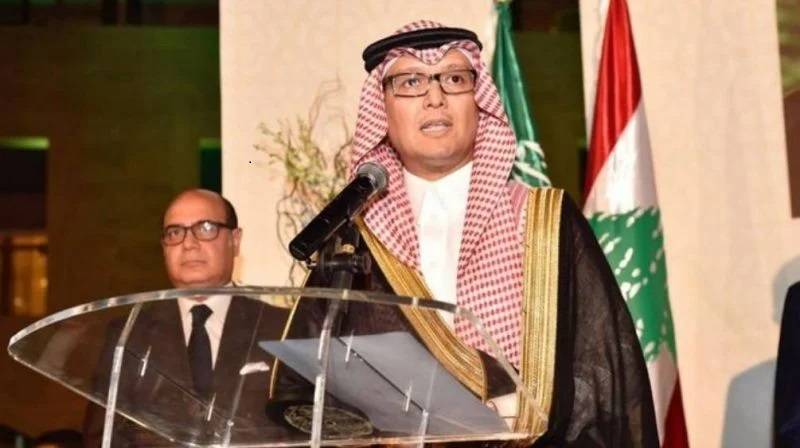
BEIRUT — Saudi Ambassador to Lebanon Waleed Bukhari’s visit to the former MP Faisal Karami last week marked the Tripolitan political circles. That is true particularly since, unlike the Saudi diplomat’s other meetings in the northern city, it lasted more than two hours and, according to those who were present, a cordial, even warm atmosphere prevailed over it.
Although relations between the Karami family and Saudi authorities have always been good, the timing of this visit carries political messages.
It should be recalled that this visit was made after a building completely collapsed on June 26 in the Qibbeh district of Tripoli, killing a little girl and igniting great ire among Tripolitans, who felt abandoned to their fate.
However, Hezbollah and its allies in North Lebanon rushed to help the tragedy-hit families. Immediately, influential political and religious figures in the city called on the Saudi authorities not to neglect Tripoli and its inhabitants who have expressed concerns over feeling abandoned by the state.
It is in this vein that Bukhari visited Tripoli on July 6 and devoted his first visit to the city to Karami, who is considered a “pillar” of the March 8 alliance.
In fact, Karami has never hidden his support for Hezbollah nor his hostility to the Lebanese Forces Leader Samir Geagea, who has become the first ally of the Saudis in Lebanon.
How, then, to interpret the Saudi diplomat’s approach? According to reliable sources in Tripoli, the two-hour meeting between Karami and Bukhari, there was talk of reviving the alliance between the movement that the former MP represents and the Saudi authorities.
According to the same several sources, there was no talk neither of Hezbollah nor the LF. But it was clear from the content of the conversation that the Saudis want to return to the northern region, after having turned their backs on it for months, even years.
According to several Tripolitan circles, throughout the election period, the Saudis had focused their efforts on the importance of pushing Sunni voters to go to the polls, and had even involved the Mufti of the Republic Abdel-Latif Derian and the sheikhs in the regions to that end.
The Saudis even chose to support former Prime Minister Fouad Siniora to take over from Future Movement leader Saad Hariri, who boycotted May’s parliamentary elections.
For Riyadh, one of the electoral challenges was to push Sunni voters to select new representatives, following Hariri’s withdrawal which somehow dictated that of the other former prime ministers.
However, the elections’ results did not meet the Saudi expectations. While in some constituencies the Sunni turnout was high, in others it was lower. In any case, these elections showed that the Future Movement continues to have a solid popular base, since in Beirut, the list supported by Siniora obtained only one seat, a Druze one, while candidates formerly affiliated with the Future movement scored high and were able to form a parliamentary group.
The Saudi authorities did not really comment on the election results and to all those who asked, they suggested that the situation in Lebanon does not particularly interest them for the moment, since they are busy with much more important issues, including the visit of US President Joe Biden to the kingdom on Friday, as well as the ongoing negotiations with Iran.
It is in this sense this was interpreted with the Saudi ambassador’s absence from the dinner for the delegations participating in the Arab League consultative meeting, which was held in Beirut on July 2.
Bukhari also did not go to the Serail after Najib Mikati was appointed prime minister-designate.
That is why his sudden appearance in Tripoli, from Karami’s home, has been surprising.
While the diplomat criticized some officials, without naming them, stating that the money provided by the kingdom was not spent wisely, he assured Tripolitains of the Saudi leadership’s support.
Parties who followed up on the diplomat’s tour of the northern capital said that the kingdom wants to get involved again in Lebanon, but in a different way.
It no longer wants to focus its support on a single political force, but rather wants to open up to many figures, especially on the Sunni scene.
These same parties indicated the ambassador was keen to show during his talks that the kingdom cares about the Lebanese Sunni community and stands at equal distance from all its representatives.
Those who saw him in Tripoli said they felt that he wants to open a new page in his relations with the Sunni community and its representatives, and that he insisted that there is no question of abandoning it or leaving it weakened at such a crucial time in Lebanon’s life.
This article was originally published in French with L'Orient-Le Jour. Translation by Joelle El Khoury.